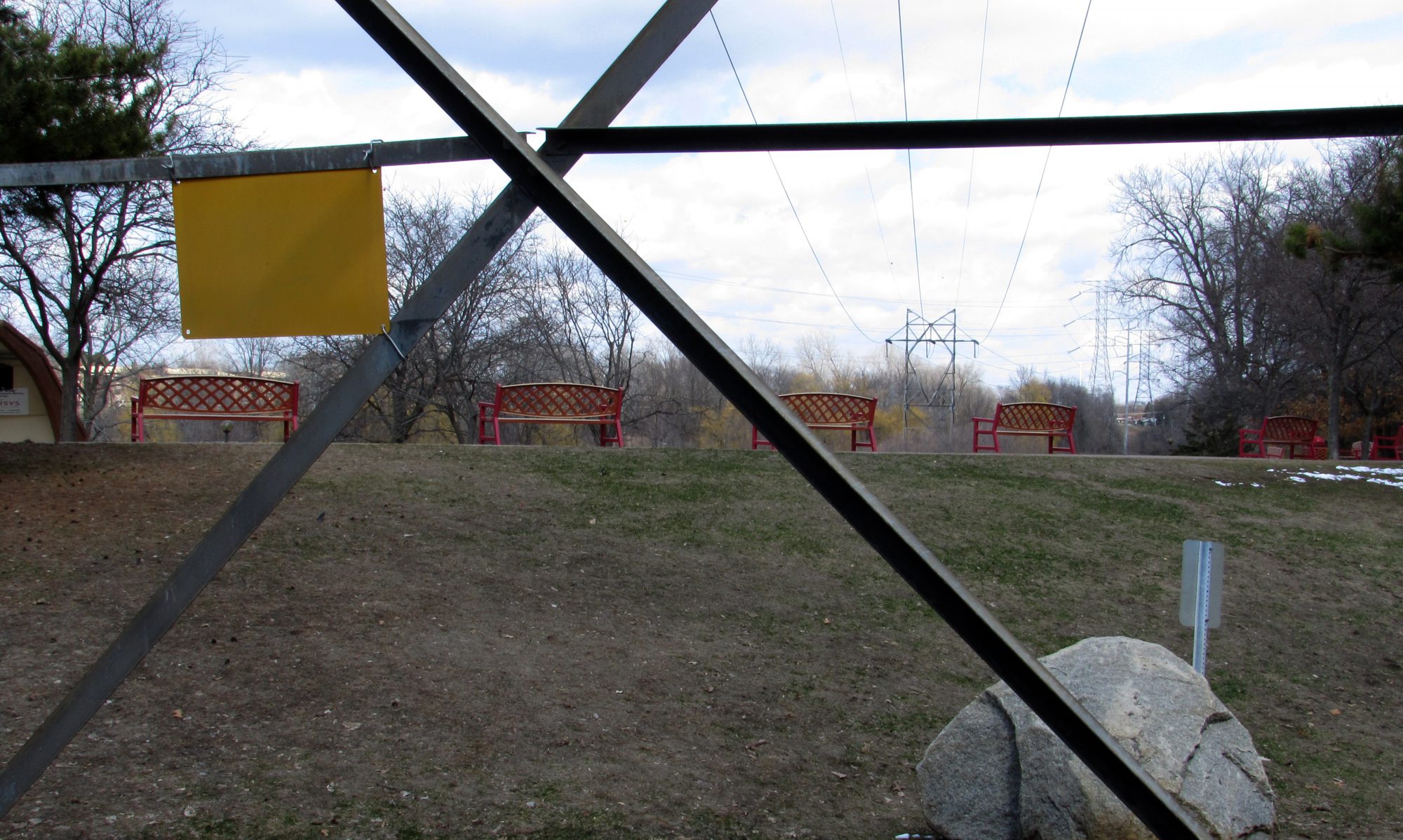Ten years ago, an explosion on the Deepwater Horizon oil rig killed 11 people, and killed or damaged extensive wildlife and ecosystems, as oil leaked out for months. The oil kept spilling for 87 days as attempts to seal the leak or contain the spill kept failing. Knowing that our fossil-fuel-based economy needs customers like me, who drive gas-consuming cars, and heat their homes with natural gas, I felt the tragedy as both observer and accomplice. Even though we may have little control over the larger systems we depend on, we are both “the players and the pawns” as the poem says.
In June 2010, as the oil still flowed into the Gulf of Mexico, I made an artist book about the spill and these feelings. I used images of our gas line since we had our utilities marked in our front lawn as we explored the installation of a rain garden. I was in a class on making digital artists books and was challenged to be more open-ended in my visual associations. The result was a concertina style artists book which I later exhibited, opened up on a fifteen-foot long frame.
Ten Years Later: Video Poem
As the 10th anniversary of the DeepWater Horizon spill approached, I wanted to revisit this work. I decided that the unfolding of images and poetry in the book could work well in a video. I’m still learning video, and actually started the sequences in PowerPoint. Then my teenage son, a video artist, helped finish it off. He thought there should be an audio background besides my voice reading the poem that comes in later. I suggested the ocean, and he brought this new dimension into the work.
Coincidentally, this April, construction work began on our front lawn. The energy utility is replacing the old 1960’s natural gas line and installing a new one ten feet closer to our house. In an alternate climate-responsive world, they would just be removing the gas line. We and our neighbors wouldn’t need it. We’d have electric heating and appliances powered by renewable electricity. Progress is being made, Minnesota has more renewable in our electric grid than ever before but the inertia of our physical and economic infrastructure slows our progress: all the homes heated by gas, of all the gas lines, all of investments in the fossil fuel sector.
The poem ends, “Sound the sirens, Light the flare.” While it is hard to sustain attention to a chronic crisis, the sirens and flares of scientists, artists, and the general public have made an impact. I will continue to join others in the cause.

